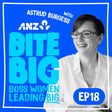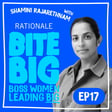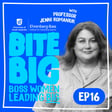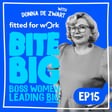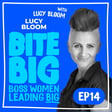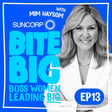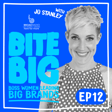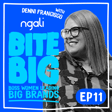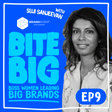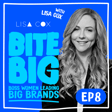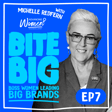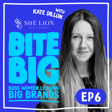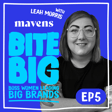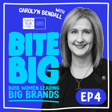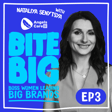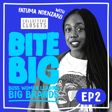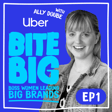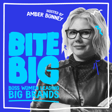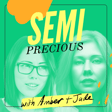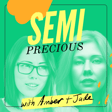
Amber Bites Big with Leisa Bacon - Director of Audiences for one of the most iconic media organisations in Australia, the ABC
In Episode 9, Amber Bonney Bites Big with superstar guest co-host Leisa Bacon who has been described as a brand & experience evangelist, she's one of Australia's most credentialed marketers and creative thinkers and holds the role of Director of Audiences for the iconic ABC (Australian Broadcasting Corporation).
Inspired by Amber's own Mantra, "bite big and chew like hell", in this episode we discuss Leisa's 25+ years of marketing experience and how her two Mantra's, "Just Do It" & "Be Kind", has shaped her career and personal life, especially during the difficult time of the COVID-19 pandemic where here value's- based decision making and ingenuity has been well documented as a best-in-class example of how to lead, pivot and innovate during challenging times.
Being named the number 1 CMO in the top CMO50 Awards in 2020 and being in the top 5 for the 3 years previous, Leisa is a formidable force that consistently shows up for her team as well as herself, and in this episode we find out exactly how and what leadership strategies Leisa uses to get the best out of her teams.
Leisa shares how she likes to flip challenges into opportunities by using the enterprise design thinking process, a methodology Amber practices in her own business. Leisa specifically discusses the media landscape and the advancement of AI and the challenges it brings with misinformation. How staying relevant to current and future generations requires harnessing diversity across a range of dimensions to produce better content and creative across a multitude of platforms.
Bite Big has donated $500 to the chosen charity CanToo an independent health promotion charity committed to funding Cancer research.
If you would like to know more about our host Amber Bonney her business The Edison Agency or co-host Leisa Bacon, you can connect and follow these boss women via their socials links below!
Links:
Leisa's LinkedIn
ABC, ABC iView or ABC Listen
References:
Brene Brown – Daring Greatly
Byron Sharp – How Brands Grow: What Marketers Don’t Know
The Edison Agency's LinkedIn
The Edison Agency's Instagram
Amber's Instagram
Amber's LinkedIn
CanToo
Credits
Main Host: Amber Bonney
Producer: Niki Beeston
Post Production : Francine Toscano, 17th Street Audio
